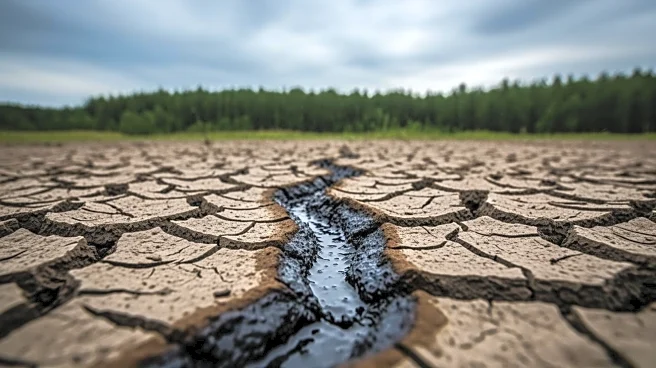What's Happening?
A London judge has ruled that BHP Group is liable for Brazil's worst environmental disaster, which occurred when a dam collapsed a decade ago, releasing toxic waste into a major river. The collapse killed
19 people and devastated villages downstream. Despite not owning the dam at the time, BHP was found negligent, with its actions contributing to the disaster. The dam, operated by Samarco, a company half-owned by BHP, ruptured in 2015, causing extensive environmental damage. The ruling is part of a class-action case involving 600,000 Brazilians and 31 communities seeking justice and compensation.
Why It's Important?
The ruling is significant as it holds a major global mining company accountable for environmental negligence, setting a precedent for corporate responsibility in ecological disasters. It highlights the ongoing struggle for justice and reparations for affected communities in Brazil. The case underscores the importance of stringent environmental regulations and corporate oversight, especially as Brazil positions itself as a global environmental leader. The decision may influence future legal actions against corporations involved in environmental harm, potentially leading to stricter industry standards and practices.
What's Next?
BHP plans to appeal the ruling, and a second phase of the trial will determine the damages owed. The claimants are seeking £36 billion in compensation. The case continues to unfold in the UK, where BHP's legal entity was based at the time of the disaster. The outcome may affect BHP's financial provisions and influence its operations in Brazil and globally. The ruling could also impact future settlements and legal strategies for similar cases, as affected communities continue to seek justice and reparations.
Beyond the Headlines
The case raises ethical questions about corporate accountability and the balance between industrial growth and environmental protection. It highlights the long-term impact of environmental disasters on local communities and ecosystems, emphasizing the need for sustainable practices. The ruling may prompt a reevaluation of industry-friendly policies that compromise ecological safety, influencing global environmental policy and corporate governance.









